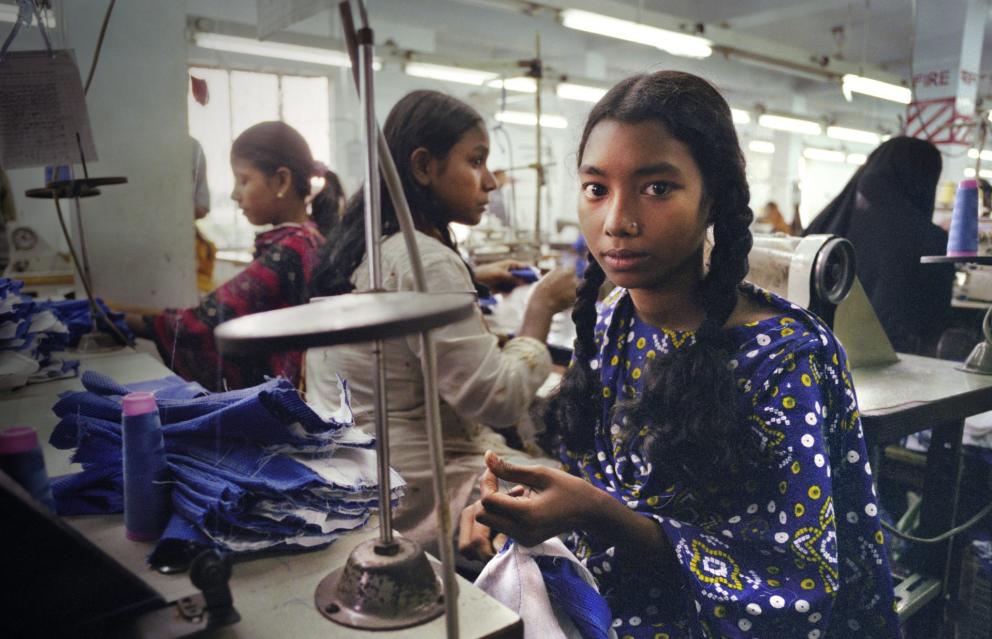
The Contemporary Dilemma: An “ethical” buyer’s reality
By Manahil Hassan, April 15 2021—
I think a few people can relate to me when they say that clothes are their kryptonite. Whether it’s thrifting for cool new jackets or shopping for a new outfit, the sentiment remains the same — clothes are a form of art and expression. But what if I told you that the clothes we buy from our beloved brands exploit underprivileged workers for free labour? And what if I told you things like sweatshops aren’t just a far-away issue?
There are no secrets here. We have known for decades of the cruel and inhumane modern slavery of struggling and starving minority groups. Just a few months ago, Hennes and Mauritz, also known as H&M, opened their 50th store in India, which is a retailer that has been accused of exploiting their workers along with many other well-known fast-fashion brands. So, let us discuss these nitty-gritty details and talk about how mega-corporations hide their dirty little secrets behind labels like “cruelty-free” clothing.
In 2013, Rana Plaza collapsed. It was a sweatshop factory in Bangladesh and cracks in the structure of this plaza were identified a day prior to the collapse. While some workers were evacuated, others were forced to come in the next day and finish their quotas. The next day, at 9 a.m., the nine floors of the building collapsed killing over 1,000 workers.
It has been eight years since the collapse of Rana Plaza. This story carries with it an aura of sadness — the sorrowful truth is that many people find it hard to care about an issue that’s thousands of miles away. Quite often, people hold the belief that they should first tend to issues occurring within their sphere of residence and then try to “save” the rest of the world. This story may sound shocking but eight years later, forced labour remains somewhat a societal norm.
Whether it is shopping from Walmart, Fashion Nova or Urban Outfitters, most of the clothes we buy are made from the blood, sweat and tears of minority groups. Even on our side of the world, sweatshops and forced labour are not a thing of the past. The trendy brand, Fashion Nova, is accused of using American-based labour to produce their ‘fast fashion’ clothing collections at a cheap price. This company now owes a whopping $3.8 million in wages to their workers. In fact, Hollywood — the home of hotshot movie stars and influencers — is a breeding ground of misery for undocumented immigrants. Here, workers are paid less for hours of labour so that these big fashion corporation can keep their prices low.
These brands and mega-corporations know about their filthy work and yet they hide behind their wealthy homes and wads of money. And while I find no need to sugarcoat the truth, I feel there are steps that we can take, as consumers, to alleviate the stress and burden of the 20.9 million victims of forced labour all over the world.
If you are doing business with other companies, ask them to work with brands that do not exploit workers for free labour. Next time you are at a store that has been accused of using forced labour to manufacture their products, send an email or request to write a comment card about the issue. One person can make a difference.
Secondly, educate others on the issue at hand — tell your family and friends about them. As a child, I used to get excited when I saw labels like “Made in Pakistan” because I was happy to wear products manufactured in my own country. I liked the representation and recognition of my people and country. Little did I know, however, that the clothes I was wearing were made by poor and burdened workers. When we educate others, we should think about that. We should remember that behind every colour and stitch, there is a person slaving themselves away.
If you are able to, buy fair trade items and second-hand clothing from consignment stores that are ethically produced. GreenPages.org and Flare.com have a list of ethical brands that are socially responsible. Fair trade items and ethical brands, however, are far more expensive than brands like H&M that sell fast fashion, so consumers should not burden themselves in trying to alleviate these issues if they are unable to. Only do what you can, in order to help. Simply educating others on the matter can go a long way.
There are countless measures to take in tackling this contemporary dilemma. But the way to begin this momentum of change is through reading about these issues and trying to empathize with the silenced. We need to use our privilege and platforms to be the voice for the voiceless.
There are thousands of strong and fearless men, women and children all over the world. These are the people that wake up, despite the atrocities they are facing, and push forward without looking back. These are the people that sacrifice everything so their families will have a better future. This is what The Contemporary Dilemma highlights. This column is part of our Voices section and does not necessarily reflect the views of the Gauntlet’s editorial board
